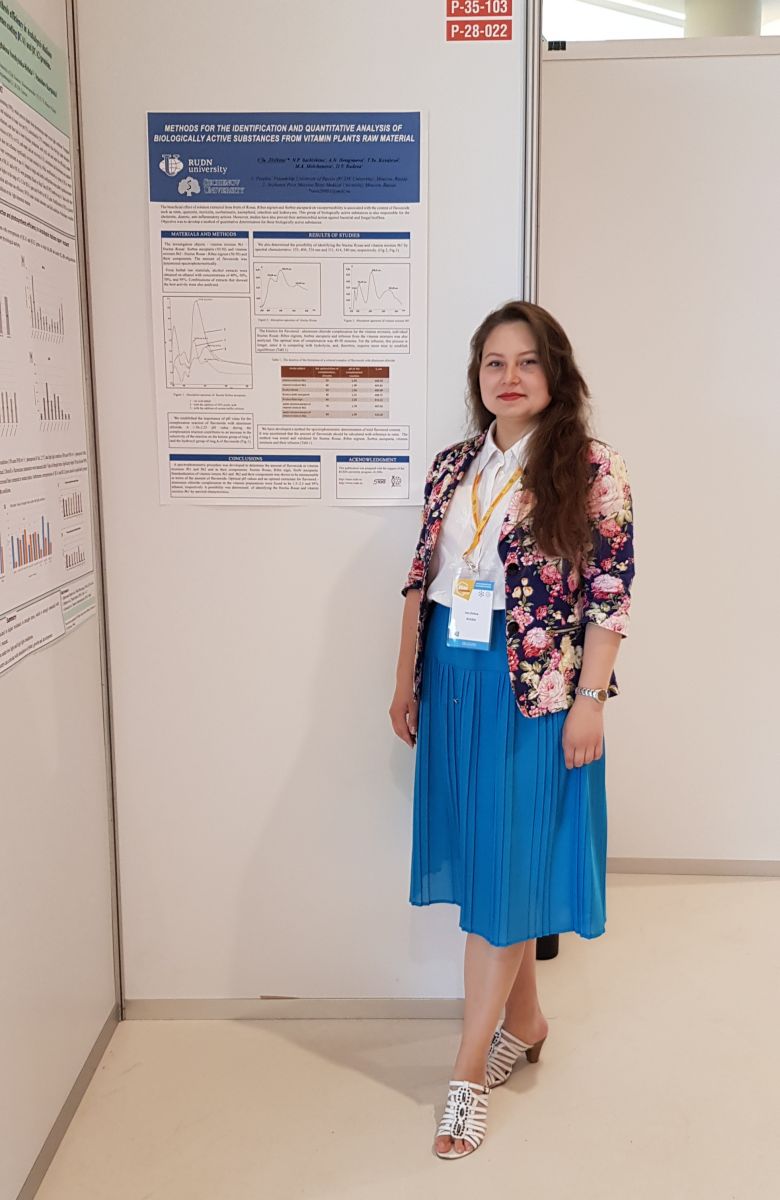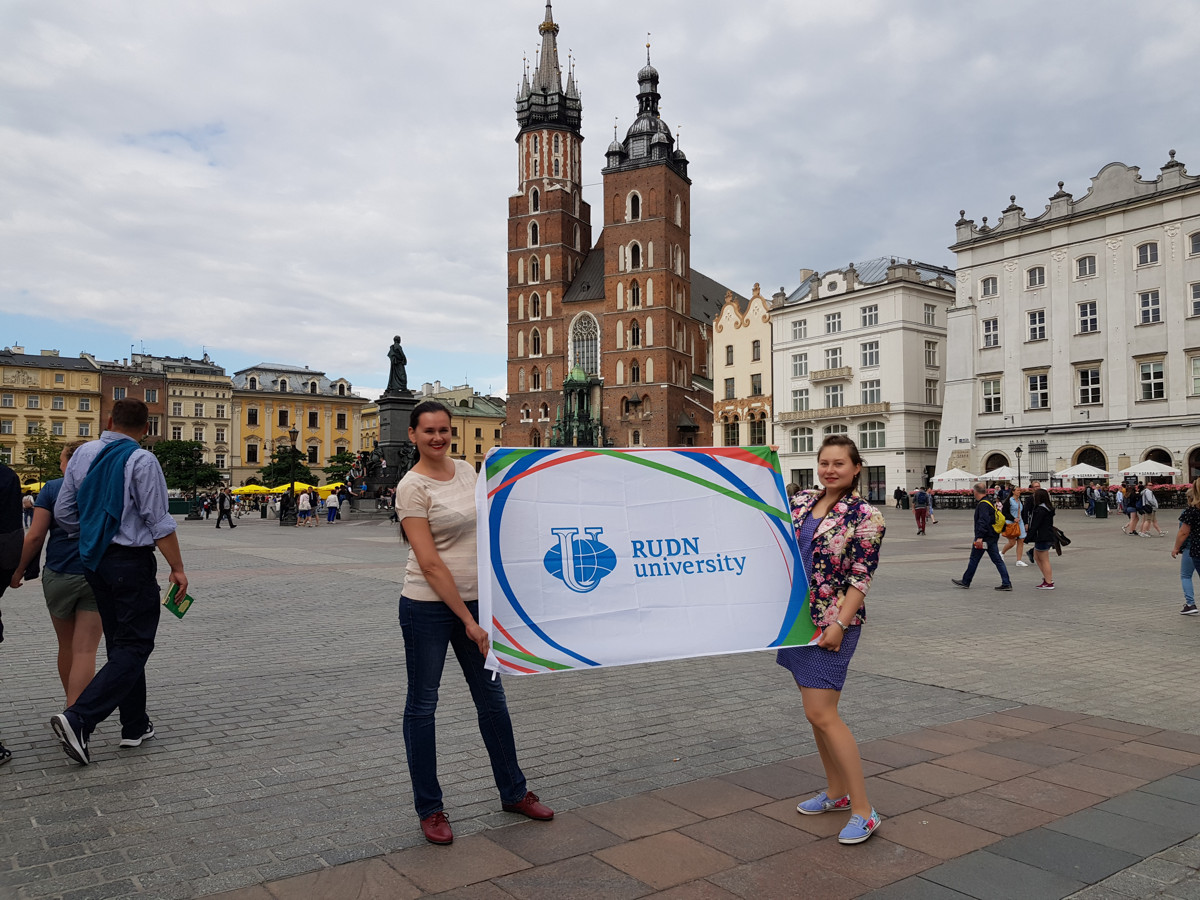“Our technique allows us to do express analysis and select high-quality medicinal plant materials, which means improving the quality of drugs based on them,” - Vera Zhilkina, IBCTN, RUDN University
 July 6-11, Poland hosted the 44th Congress of the Federation of European Biochemical Societies “From molecules to living systems” bringing together scientists from Austria, Brazil, Germany, Spain, Italy, the USA, France, Sweden and other countries. RUDN University was presented by researchers from the Institute of Biochemical Technology and Nanotechnology (IBCTN) – assistant lecturer Vera Zhilkina and graduate student Anastasia Stoynova.
July 6-11, Poland hosted the 44th Congress of the Federation of European Biochemical Societies “From molecules to living systems” bringing together scientists from Austria, Brazil, Germany, Spain, Italy, the USA, France, Sweden and other countries. RUDN University was presented by researchers from the Institute of Biochemical Technology and Nanotechnology (IBCTN) – assistant lecturer Vera Zhilkina and graduate student Anastasia Stoynova.
Among the key topics of the congress are plant biotechnology, bionanotechnology, polymer synthesis for biomedicine, synthetic networks and systems, analysis and visualization of individual cells, women in science, education in the field of biochemistry and molecular biology. Vera Zhilkina made a presentation “Methods for the identification and quantitative analysis of biologically active substances from vitamin plants raw material” in the section “Plant biotechnology”. Abstracts were published in a special issue of FEBS Open Bio, indexed in WoS.
“In the production of medicines from plant materials, standardization is important - what parameters to use for standardization, whether it is possible to use the material, what is the chemical composition of the raw materials, how many biologically active substances - for example, flavonoids there are. Using the example of wild rose and vitamin brew No. 1, we have proved the effectiveness of the spectral identification technique for three absorption maxima. This technique allows for express analysis and selection of high-quality medicinal plant materials, which means improving the quality of drugs. We also established parameters that increase the selectivity of the method in the quantitative analysis of raw materials and preparations based on them. We patented this technique, so the result of the work of a full scientific cycle was presented at the Congress, ” said Vera Zhilkina, Assistant lecturer of the Institute of Biochemical and Nanotecnology.
Anastasia Stoynova made a report “Diagnosis of the thyroid gland diseases: nanotechnology in the development of diagnostic test systems” in the section “Bionanotechnology”.
“The goal of the FEBS community is to organize an international forum for the direct exchange of knowledge and ideas in the field of molecular life sciences. The event has become a successful platform for close international cooperation and scientific collaborations,” said Anastasia Stoynova, graduate student of IBCTN, RUDN University.
Products derived from microalgae represent a cutting-edge development in the field of bioeconomy. The potential of this biological resource was discussed at the international research seminar “Foundations for a Green Sustainable Energy”, part of the BRICS Network University’s thematic group on “Energy”. The event was organized by the Institute of Ecology at RUDN University.
Ambassadors of Russian education and science met at a conference in RUDN University to discuss how they can increase the visibility of Russian universities and research organizations in the world, and attract more international students in Russia.
The international scientific seminar hosted by RUDN Institute of Ecology “Experience of participation in student organizations as a way to form career skills” united scholarship recipients of the International Student Mobility Awards 2024 and Open Doors, along with members of the scientific student society “GreenLab” and the professional student association “Kostyor (Bonfire)” shared their projects focused on environmental protection.
